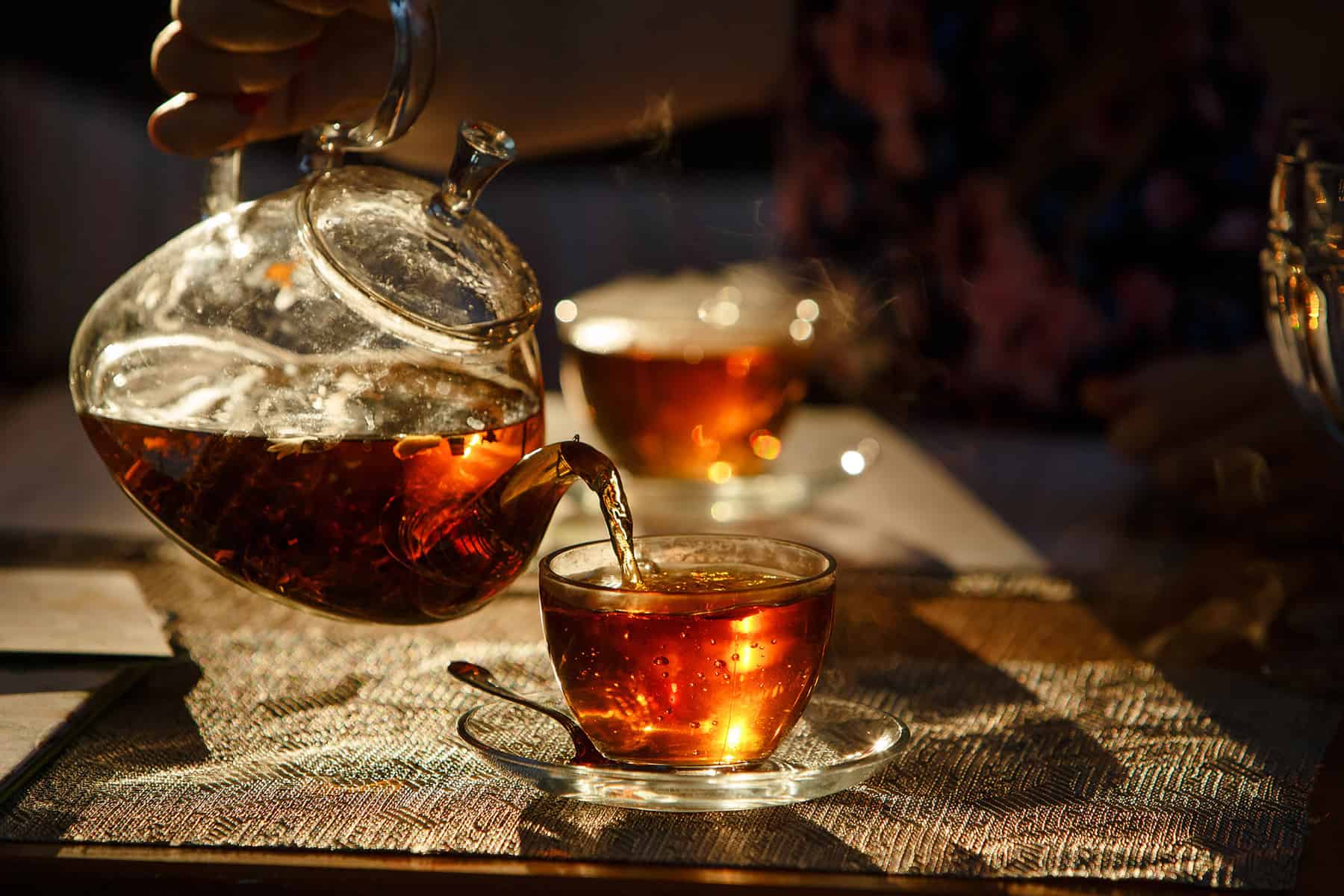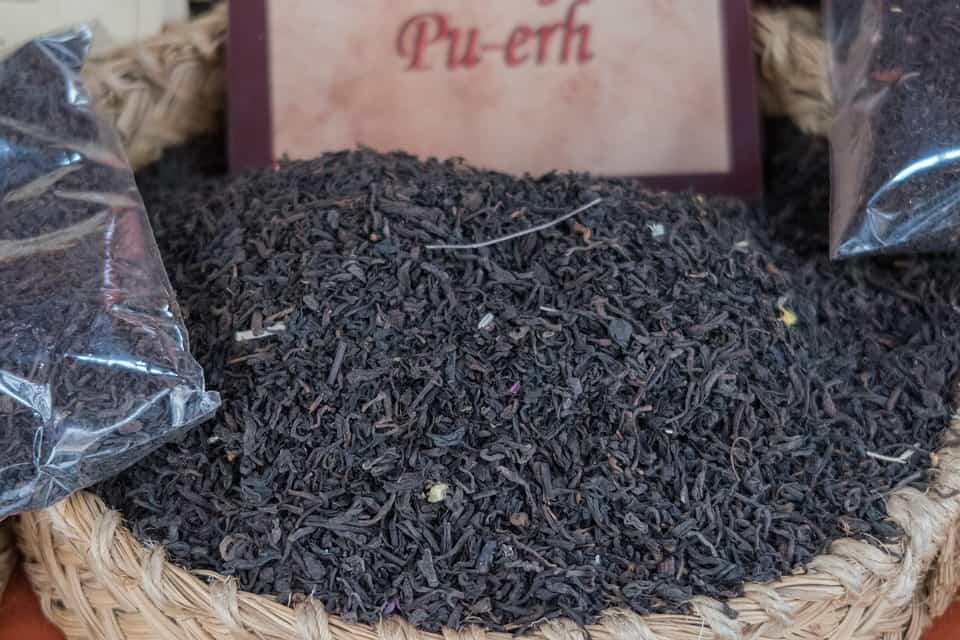Cinnamon (Ceylon cinnamon) is one of the most popular spices in the world that everyone seems to love.
The unique flavor and aromatic fragrant of cinnamon have been used as a delicious addition to various kinds of cuisines, either sweet or savory.
In addition to its tasty and aromatic features, there are numerous cinnamon tea benefits that you can reap while sipping a cup of this herbal tea.
A. What is Cinnamon Tea?
Coming from the Asian tropical tree, cinnamon is used in the form of bark, stick, and powder or extract.
Therefore, cinnamon tea can be made using all those forms. The most common and easiest way to make a cinnamon tea is by infusing cinnamon sticks into hot or boiling water.
Store-bought cinnamon tea, on the other hand, contains crushed cinnamon barks that are packed into tea bags.
Alternatively, you can also find cinnamon powder and cinnamon extract in some herbal stores.
Making cinnamon tea from the powder or extract is quite easy. You only need to brew them for several minutes, and then pour the liquid to a teacup to enjoy.
Although Ceylon cinnamon is the most popular species for cinnamon tea, some other species are open to using.
Tea drinkers in China and Korea prefer to use Cinnamomum cassia, a Chinese cinnamon species which is served with natural sweeteners.
Meanwhile, in most Southeast Asian countries, the preferred species is Saigon cinnamon, a Vietnamese cultivar.
B. The Flavor of Cinnamon Tea
Because of its woody base, cinnamon tea features an earthy flavor with a bit of spicy taste.
You can also taste a mixture of sweet and savory flavor in a cup of infused cinnamon tea. Besides its unique flavor, cinnamon tea is valued for its enticing aroma.
The distinctive scent of cinnamon tea will surround you with a warming atmosphere and make you feel relaxed at once.
Those who want to go beyond the natural flavor of cinnamon often add some sweeteners to the tea.
Honey, sugar, and some types of spices are considered the most common sweetening agents for cinnamon tea.
Cinnamon is also combined with ginger to create a stronger herbal beverage that you can enjoy during cold seasons.
C. Is Cinnamon Good for You?
The answer, as you probably have guessed, is yes. The cinnamon bark itself is loaded with various types of antioxidants, including catechins and procyanidins.
Those antioxidants are beneficial for your immune system. They can protect you from any harmful effect caused by free radicals.
Also, the antioxidants in cinnamon possess stress-relieving properties that will transfer you into a calming and relaxing state for every tea drop you sip.
Other beneficial substances that you can find in cinnamon tea are flavonoids and polyphenols.
The functions of both substances are similar to antioxidants. They play an important role in destroying free radicals that bring destructive effects to your body.
In the next section, you can discover more about cinnamon tea benefits for your health in general.
Read also:
D. Health Benefits of Cinnamon Tea
As mentioned earlier, cinnamon tea contains several types of antioxidants as well as other useful substances that can keep you fit and healthy all the time.
Immunity booster seems to be one of the primary functions provided by this herbal tea.
Aside from that, cinnamon tea still has a lot of benefits to offer, from fighting inflammation to nourishing your skin.
Among numerous cinnamon tea benefits for your health, the following list concludes some benefits of this herbal tea that are worth mentioning.
1. Fights Inflammation
In addition to antioxidants, cinnamon tea is loaded with anti-inflammatory compounds.
Therefore, this herbal tea is regarded as a safe and effective way to fight inflammation that causes internal pains and blood diseases.
2. Boosts Up Metabolism
Because it is rich in manganese, cinnamon tea can improve your metabolism.
Manganese is a type of essential mineral that helps metabolizing proteins and carbohydrates at a faster rate. For this reason, including this tea on your diet is considered a wise decision.
3. Nourishes Your Skin
Besides boosting the immune system, antioxidants in cinnamon tea are beneficial for your skin.
They can fight free radicals which cause premature ageing. Additionally, the spice will regulate your blood flow, resulting in fresh and radiant skin.
4. Improves Brain Function
Some recent studies in the field of neurobiological science prove that consuming cinnamon tea is linked to better brain function.
Also, cinnamon tea can prevent you against some neurological diseases, including Alzheimer’s and Parkinson’s.
5. Prevents Heart Disease
The antioxidants and anti-inflammatory substances in cinnamon tea can reduce the risk of heart disease and other cardiovascular illnesses.
They also work by keeping your cholesterol and blood sugar at a balanced level for your heart.
E. How to Make Cinnamon Tea
1. Brewing
Brewing cinnamon tea is simple and easy. First things first, put cinnamon sticks in boiling water for 15-20 minutes.
After the water turns brown, let the sticks steep for at least 10 minutes before you pour the liquid into the teacup. Then, you can enjoy the tea while it is still warm.
However, if you use cinnamon extract or tea bags, the brewing procedure is completely different.
All you have to do is put the extracts or tea bags in the teacup, and then pour them with hot water.
While this option seems more practical, many people still prefer the old-fashioned way by brewing the sticks from the beginning. Such procedure offers more natural taste, not to mention more delicious flavor.
2. Serving
Cinnamon tea is naturally sweet with a bit of spicy taste. Despite this, there are many variations in the cinnamon recipe, which result in more interesting flavor mixtures.
For instance, you can add some honey or fruits to the tea to make it sweeter.
Cinnamon is also mixed well with ginger for an ultimate warm beverage during cold seasons.
If you prefer the more extraordinary flavor, try to blend cinnamon sticks and black tea leaves in one pot. This blended brew is quite popular in South America as a traditional beverage.
Read also:
- Most Recommended Teas to Curb Anxiety and Stress
- Benefits, Side Effects, and Flavor Profile of Sage Tea
- Oolong Tea: Origins, Flavor, and Benefits
F. Cinnamon Tea Side Effects
Behind the cinnamon tea benefits, there are several sides effects of which you should be aware of.
Cinnamon tea may cause allergic reactions to some people who are allergic to cinnamon tree or cinnamaldehyde.
The symptoms include the swollen tongue, itched, or rash skin, as well as difficulty breathing.
Even when you are not allergic, you still need to keep cinnamon tea consumption in moderate amounts.
Excessive drinking of cinnamon tea might be harmful to your oral health as it causes mouth sores and throat irritation.



